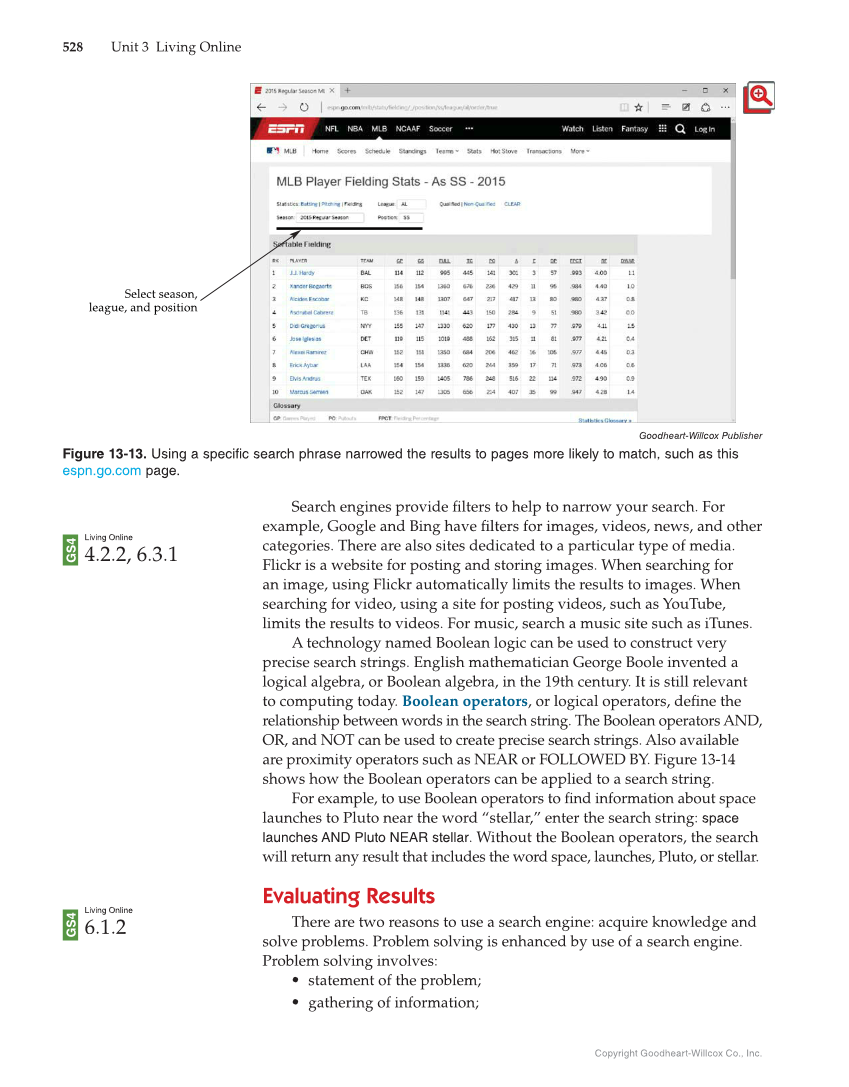Copyright Goodheart-Willcox Co., Inc. 528 Unit 3 Living Online Search engines provide fi lters to help to narrow your search. For example, Google and Bing have fi lters for images, videos, news, and other categories. There are also sites dedicated to a particular type of media. Flickr is a website for posting and storing images. When searching for an image, using Flickr automatically limits the results to images. When searching for video, using a site for posting videos, such as YouTube, limits the results to videos. For music, search a music site such as iTunes. A technology named Boolean logic can be used to construct very precise search strings. English mathematician George Boole invented a logical algebra, or Boolean algebra, in the 19th century. It is still relevant to computing today. Boolean operators, or logical operators, defi ne the relationship between words in the search string. The Boolean operators AND, OR, and NOT can be used to create precise search strings. Also available are proximity operators such as NEAR or FOLLOWED BY. Figure 13-14 shows how the Boolean operators can be applied to a search string. For example, to use Boolean operators to fi nd information about space launches to Pluto near the word “stellar,” enter the search string: space launches AND Pluto NEAR stellar. Without the Boolean operators, the search will return any result that includes the word space, launches, Pluto, or stellar. Evaluating Results There are two reasons to use a search engine: acquire knowledge and solve problems. Problem solving is enhanced by use of a search engine. Problem solving involves: • statement of the problem • gathering of information Living Online 4.2.2, 6.3.1 Living Online 6.1.2 Select season, league, and position Goodheart-Willcox Publisher Figure 13-13. Using a specific search phrase narrowed the results to pages more likely to match, such as this espn.go.com page. GS4 GS4
